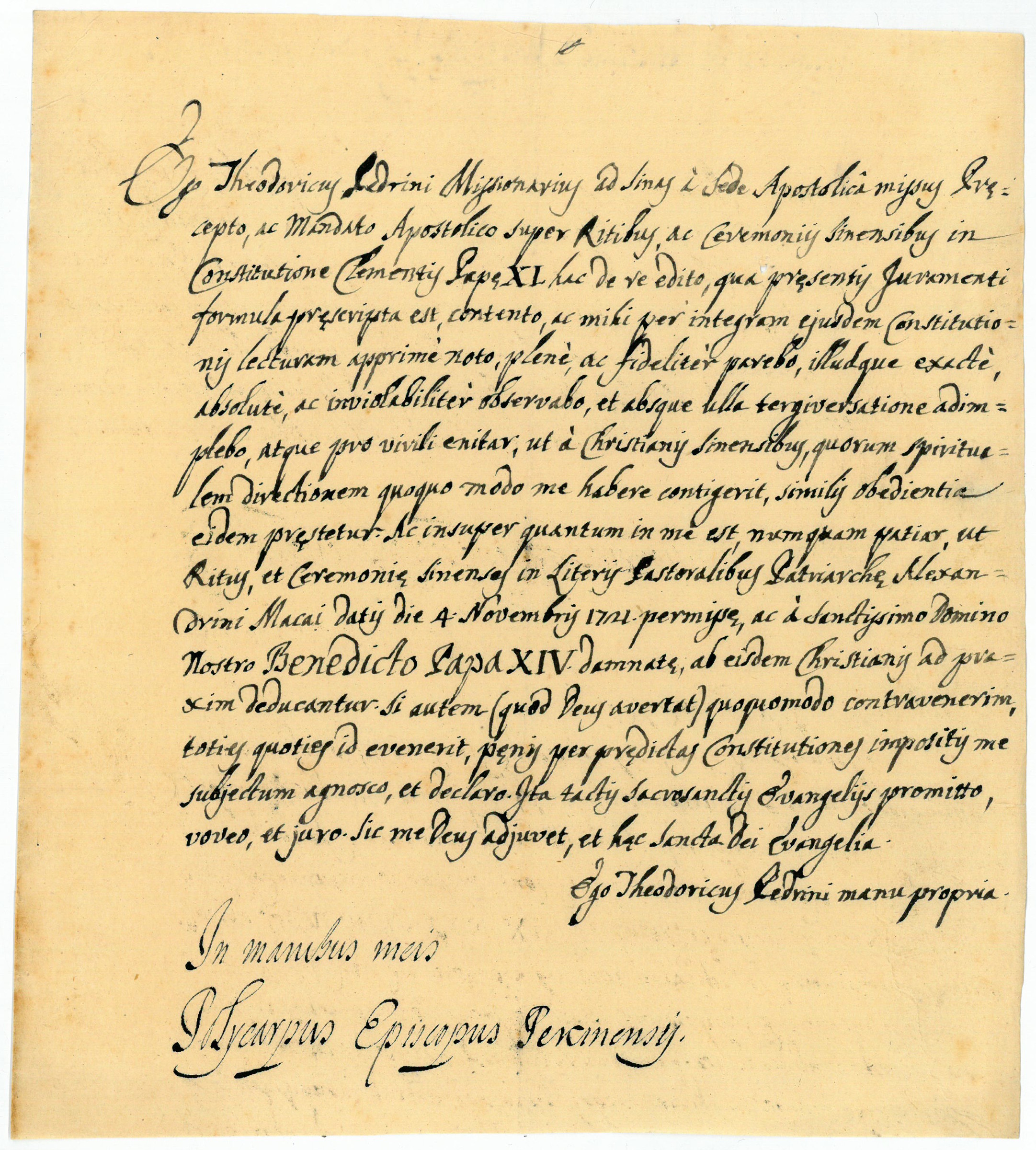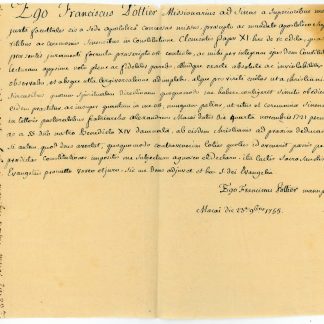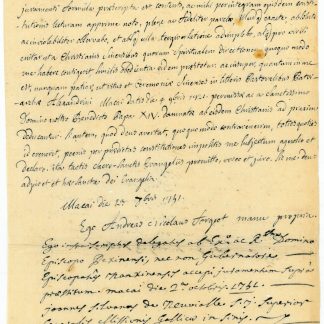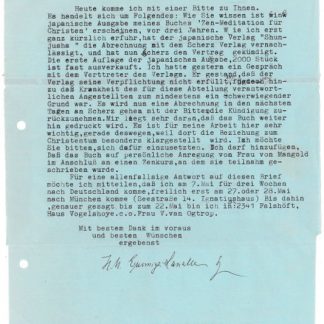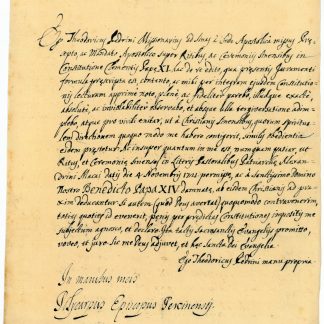In the center of the Chinese Rites controversy: Teodorico Pedrini renounces the practice that he fought for decades
Autograph document signed. Co-signed by the bishop of Beijing, Polycarpo da Souza.
4to. 1 p. In Latin.
€ 3,000.00
An oath renouncing the practice of the Chinese rites, taken by one of their most prominent critics as required by the Papal Bull "Ex Quo Singulari" (1742). The oath was sworn on the Bible, and a form signed in one's own hand ("manu propria") had to be produced as evidence. Most of these documents are co-signed by church officials or senior friars as witnesses to an oath sworn in their presence ("in manibus meis"), in this case the Bishop of Beijing, Polycarpo da Souza (1743-57).
The Vincentian priest and Propaganda Fide missionary Teodorico Pedrini was at the centre of the Chinese Rites controversy in the 18th century, to which this historically important document attests. During the early years of their mission to East Asia, the Jesuits led by Matteo Ricci accommodated Catholicism to Chinese customs and Confucian practice in important ways, both for political reasons and in the hope of attracting more converts. Criticism of this syncretism is as old as the Chinese rites themselves, and Ricci's immediate successor Niccolò Longobardo attempted to change course, which led to his replacement as provincial. When Dominican and Franciscan missionaries entered China, they reported to Rome critically on the Jesuit practices. In 1702, Teodorico Pedrini, who personally knew Pope Clement XI, was selected as a member of the first Papal Legation to Beijing of Carlo Tommaso Maillard de Tournon that was supposed assert Papal control over the missionaries and eliminate the practice of Chinese Rites. Due to several long delays in his journey to China, Pedrini never managed to join the ill-fated mission preceding him. Only in January 1710 did he reach Macau together with Matteo Ripa; there he met the gravely ill Tournon, who had been exiled from mainland China by the Emperor due to his uncompromising position on the Chinese Rites and placed in Portuguese custody. Despite the Jesuits' efforts to keep Pedrini and the other Propaganda Fide missionaries, who were reporting directly to Rome, away from the Imperial Court, the Kangxi Emperor called him to Beijing to benefit from his knowledge of Western music. Upon his arrival in 1711, Pedrini was immediately employed as a musician and music teacher to the princes, soon gaining the Emperor's trust. Though uncontroversial in his musical achievements, including the completion of Tomás Pereira's "Lulu Zhèngyì-Xùbian", the first treatise on Western music theory written in Chinese in 1714, Pedrini became the main antagonist of the powerful Jesuits at the court. Only through his and Matteo Ripa's insistence did the news of the 1715 Papal Bull "Ex Ille Die" condemning the practice of Chinese Rites even reach Beijing. The ensuing diplomatic crisis led to the second Papal Legation of Carlo Ambrosio Mezzabarba in 1721, which failed to soften the Emperor's policy towards Christians in retaliation for the ban of the Chinese Rites. In consequence, Pedrini was imprisoned at the French Jesuit residence in Beijing for refusing to sign the so-called "Diarium Mandarinorum", the official report of the legation drawn up by the Jesuits. While Ripa complied under protest, Pedrini did not sign the document, thus losing the protection of the Kangxi Emperor, who had valued him highly as a court musician. When the Yongzheng Emperor ascended the throne, he soon had Pedrini liberated and re-installed as a court musician and music teacher. A quieter phase in Pedrini's life began as Papal control over the missionaries in China slowly took hold. The requirement for all missionaries to sign an oath in accordance with the Bull "Ex Quo Singulari" from 1742 was certainly a personal victory for Pedrini. Later in his life, Pedrini reconciled with the Jesuits, and he would even be buried on the Zhalan Cemetary in Beijing. But while Pedrini and the Jesuits in the capital retained their positions at the Imperial Court and enjoyed relative religious freedom, the persecution of missionaries and converts outside Beijing and Guangzhou would only intensify over the 18th century.
A transcription and translation of the document is available on request.
Minimally stained.

